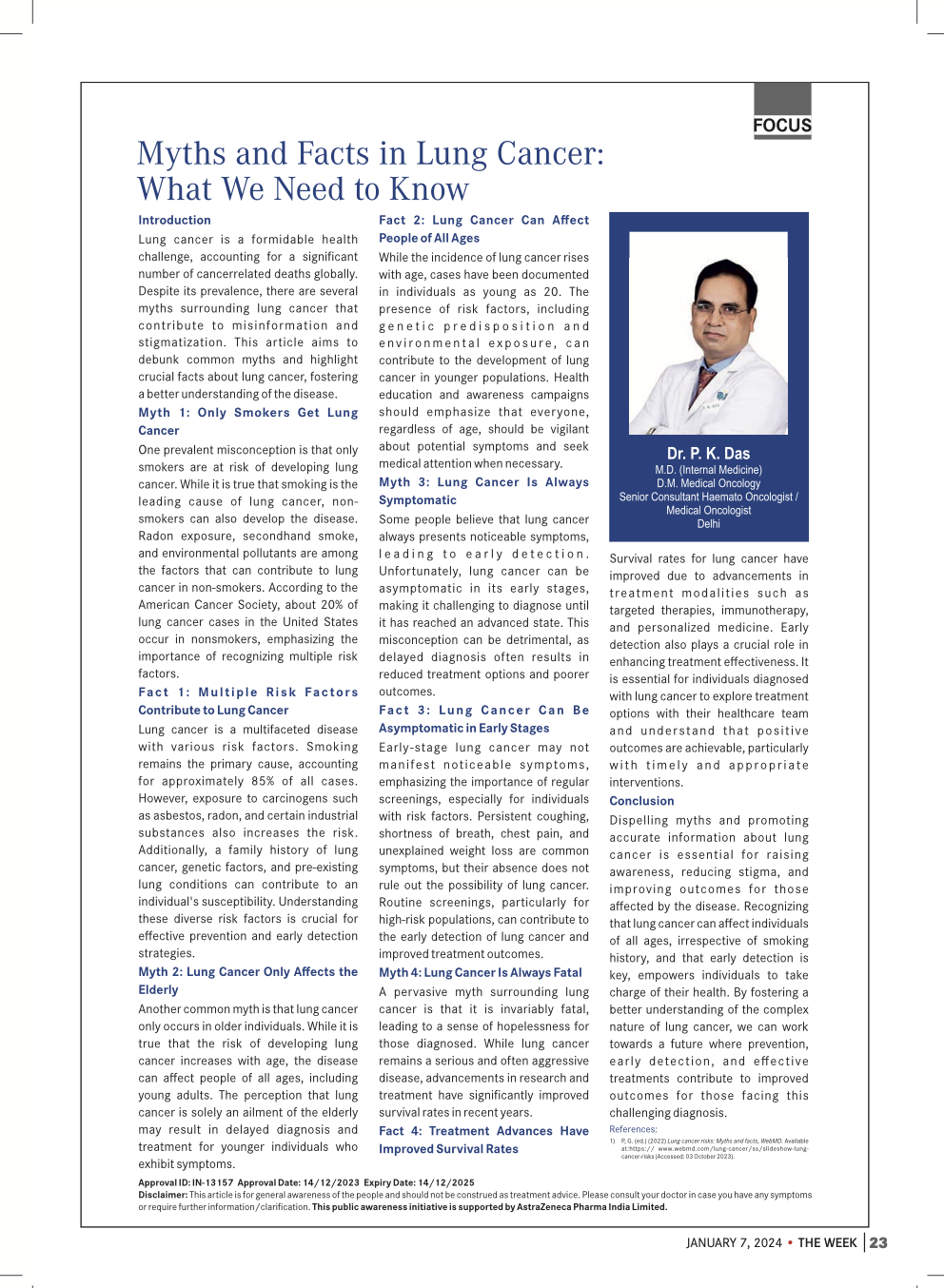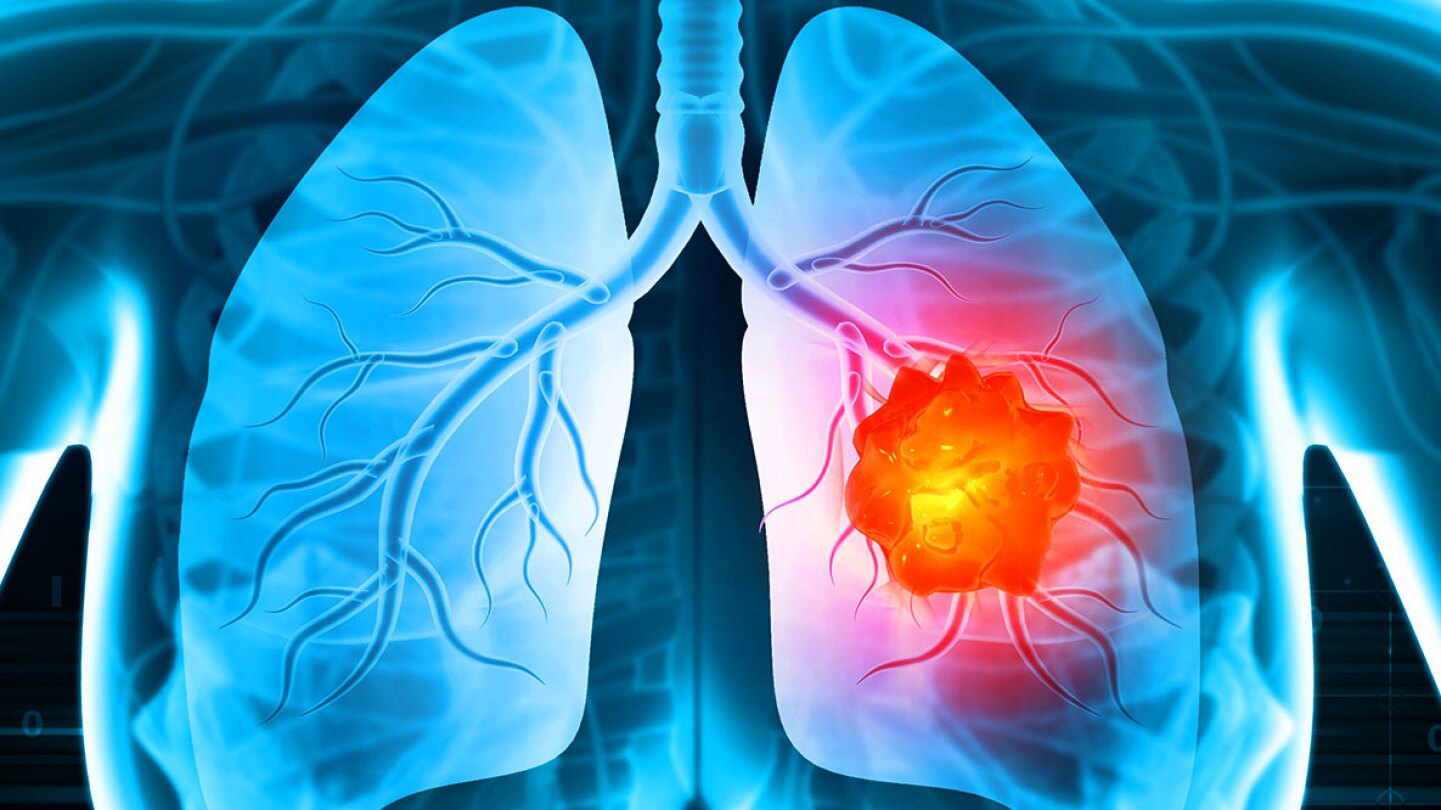|
Getting your Trinity Audio player ready...
|
Lung cancer remains a significant health concern globally, often clouded by various myths and misconceptions. In this article, we will debunk prevalent myths and shed light on crucial facts to enhance our understanding of this complex disease.

Introduction
Lung cancer, a formidable adversary in the realm of health, demands our attention and awareness. By unraveling the myths surrounding it, we can better equip ourselves to face the challenges it poses.
Myth: Only Smokers Get Lung Cancer
One of the most common myths associated with lung cancer is the belief that only smokers are at risk. However, this oversimplified view ignores the multifaceted nature of the disease.
Fact: Non-Smokers Can Develop Lung Cancer
Contrary to popular belief, non-smokers are not immune to lung cancer. Statistics reveal a growing number of cases among individuals who have never smoked, emphasizing the need to consider other risk factors.
Myth: Lung Cancer is Always Fatal
The perception that a lung cancer diagnosis is synonymous with a death sentence is both outdated and inaccurate. Survival rates have significantly improved over the years, thanks to advancements in medical science.
Fact: Early Detection Improves Survival Rates
The key to increasing survival rates lies in early detection. Regular screenings and prompt medical attention can turn the tide, offering hope and a chance for a positive outcome.
Myth: Lung Cancer Only Affects the Elderly
While age is indeed a risk factor, assuming that only the elderly are susceptible oversimplifies the demographic affected by lung cancer.
Fact: Lung Cancer Can Impact Any Age Group
Lung cancer respects no age boundaries, affecting individuals across various age groups. Understanding this reality is crucial for timely diagnosis and intervention.
Myth: Quitting Smoking Eliminates All Risks
Quitting smoking is undoubtedly a commendable decision for overall health. However, it does not erase all risks associated with lung cancer.
Fact: Long-Term Health Benefits of Quitting
Quitting smoking offers substantial health benefits, reducing the risk of lung cancer recurrence and contributing to improved overall well-being.
Myth: Lung Cancer Symptoms Are Always Obvious
Assuming that lung cancer always manifests with glaring symptoms can lead to delayed diagnosis and treatment.
Fact: Recognizing Early Signs is Crucial
Being vigilant about subtle symptoms such as persistent cough, chest pain, or unexplained weight loss can significantly impact the course of treatment and prognosis.
Myth: Treatment Options Are Limited
The misconception that treatment options for lung cancer are limited overlooks the remarkable progress made in the field of oncology.
Fact: Diverse Treatment Approaches Available
From surgery and chemotherapy to immunotherapy and targeted therapies, a spectrum of treatment options exists. Tailoring these approaches to individual cases enhances the effectiveness of treatment.
Myth: Nothing Can Prevent Lung Cancer
Feeling resigned to the belief that nothing can prevent lung cancer undermines the importance of adopting a proactive and healthy lifestyle.
Fact: Healthy Lifestyle Can Reduce Risks
Maintaining a healthy lifestyle, including a balanced diet and regular exercise, can contribute to reducing the risk of lung cancer. Taking preventive measures is a powerful step toward overall well-being.

Conclusion
In conclusion, dispelling myths and understanding the facts surrounding lung cancer is vital for informed decision-making, timely intervention, and improved outcomes. By embracing a proactive approach to health, we can collectively work towards a future where lung cancer is not only treatable but preventable.
FAQs
- Can non-smokers really get lung cancer?
- Yes, non-smokers can develop lung cancer due to various risk factors.
- Is quitting smoking enough to eliminate the risk of lung cancer?
- While quitting smoking is beneficial, other factors contribute to lung cancer risks.
- Are lung cancer symptoms always noticeable?
- No, some symptoms can be subtle, underscoring the importance of regular check-ups.
- What are the latest advancements in lung cancer treatment?
- Treatment options include surgery, chemotherapy, immunotherapy, and targeted therapies.
- How can a healthy lifestyle reduce the risk of lung cancer?
- Adopting a balanced diet and regular exercise can contribute to lowering the risk of lung cancer.

